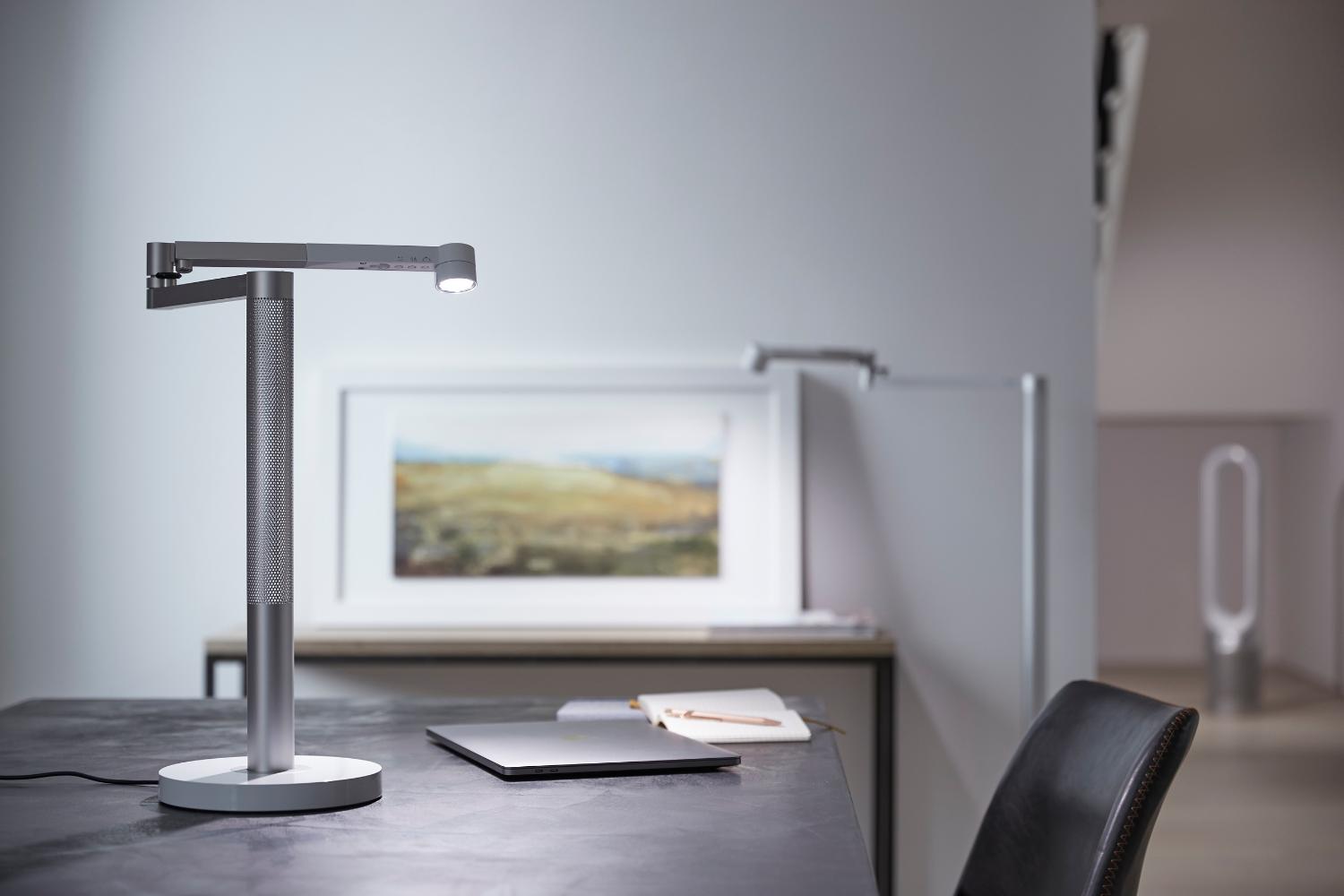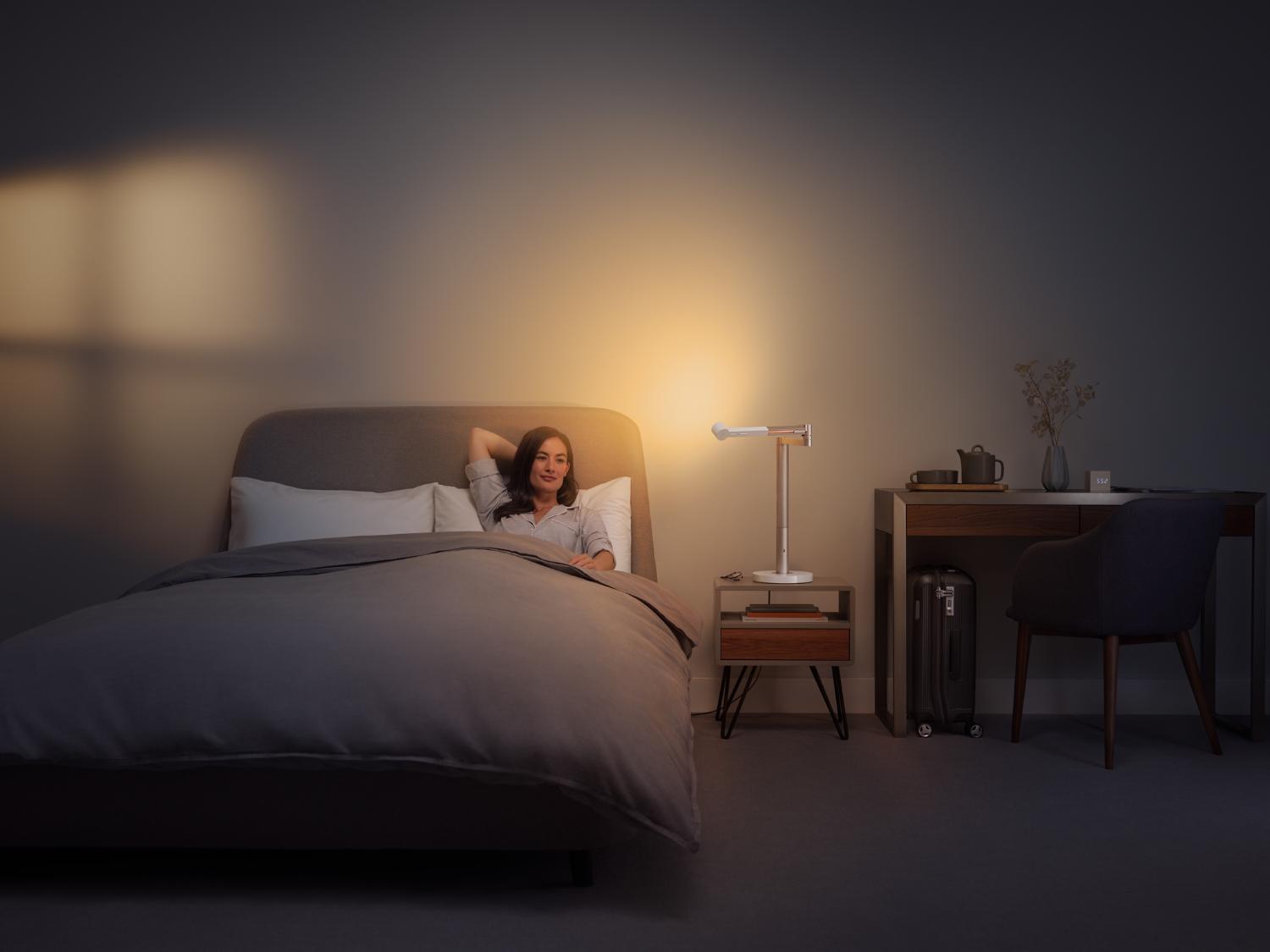Your Machine | Tips
How to cope with Daylight Savings ending
Behavioral sleep doctor Lisa Medalie and Dyson research engineer Alex Kember provide guidance on how to leverage lighting in your home to ease the transition of daylight savings ending and establish a solid routine.
On Sunday, November 3 at 2:00am CST, Americans gained one more hour of sleep as the clock fell back, signaling the end of daylight savings time. While it’s great to have an extra hour in bed, the time change can cause a shift in the light we are exposed to and potentially our daily routine. The change in light can have an impact on our body clock, more specifically our ability to get a good night of sleep and optimize productivity throughout the day.
As we head into a traditionally darker season, we turned to our go-to experts on the matter of sleep and light. Behavioral sleep doctor Lisa Medalie and Dyson research engineer Alex Kember break down important considerations when it comes to lighting your home and how you can set yourself up for success to mitigate the imbalance our bodies feel when the clock falls back.
Dr. Lisa Medalie on establishing a sleep and lighting routine
- Try a gradual shift: While it’s only an hour change, for some the shift can feel more intense. Try shifting your schedule a few minutes earlier each day in the few days leading up to the change so it doesn’t feel like such a leap.
- Track your energy levels: Typically, we will have times of the day where we feel more or less energetic. Try tracking your energy levels and after a few days you should see a pattern of when you may have the most or least energy. Just ahead of those low points, try adjusting the light around you to be brighter and more blue light to promote productivity during those mid-day slumps.
- Create a bedtime routine (that does not include your phone): It’s understood that sleep can be hard to achieve when anxiety levels are high. Having your phone involved in your bedtime routine can hurt your sleep – both from the light it exposes to our eyes and from a mental perspective. Try to take one hour for yourself before bed to not use electronics and instead do something for yourself, like reading, taking a bath or meditating. Then leave your devices charging on the kitchen counter so you’re not tempted to reach for them before falling asleep. And if you’re worried about how you’ll wake up without the alarm clock on your phone, consider purchasing an old-fashioned alarm clock or using a timed light to wake you up.

The development of Dyson’s latest lighting technology
Lighting is vital to how we experience an environment, and it’s important to consider how lighting in your home aligns with how you live. Just as other home features have developed innovations to increase personalization to your needs, lighting is no different. It should be able to adapt to your patterns throughout the day – from gradual wake up and getting ready in the morning, to creating your personal home office and then winding down for sleep in the evening.
Variables like the time of year and height of the sun can change our circumstances, so we need lighting that is along for the ride and can adapt to our evolving routines. The Dyson Solarcycle Morph is designed to challenge the conventions of contemporary article lighting and find a solution to provide the right light, at the right time, precisely where it is needed.
.jpg?$responsive$)
Dyson engineer Alex Kember on leveraging light in your home
Lighting plays a fundamental role in creating a productive home environment conducive to both health and comfort. There are a few key tips to remember when it comes to lighting different spaces in your home.
- Maximize daylight. To help support your body clock, consider interior lighting that gives you the ability to vary the light temperature (cool to warm light) and brightness for the time of day. Set up your working area near a window or in another naturally well-lit space.
- Choose the right light for your activity. Light levels need to be right for the task at hand, as low light, flicker and glare can cause eye strain and visual fatigue. If you want a cozy dim light to read under, make sure it still delivers enough light, so you don’t suffer from eye strain. For intricate tasks such as painting, drawing or applying makeup, consider an artificial light with a high color rendering index.
- For the bedroom. Similarly to how you should layer lighting formats, heights and positions in your living room, you can also do this in your bedroom. But one crucial difference is sleep. To avoid disrupting your body clock, you should have lights that can support a wind-down to sleep in the evening and a gradual wake up in the morning. A light that provides variable color temperature and brightness is the best solution.
- Considerations for the kitchen. It’s important not to overlook the value of the lighting you are under when preparing food. Cheap lights can have a poor color rendering index and cause issues, as they can inhibit your ability to decide if food is cooked thoroughly based on the color you perceive.
Press contacts
-
USA
Emails us at USPR@Dyson.com
1330 West Fulton Street, 5th Floor, Chicago IL, 60607
-
Social media
- Twitter: @dyson
- YouTube: youtube.com/dyson
- Facebook: facebook.com/dyson
- Instagram: @Dyson
- Instagram: @dysonbeauty
- LinkedIn: Dyson
- Pinterest: Dyson Technology

